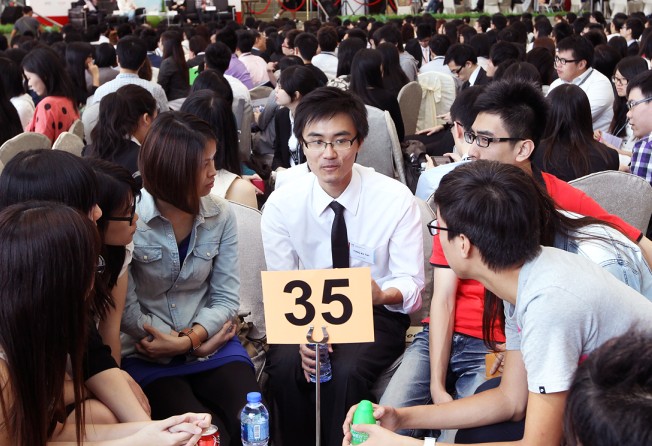
Two-thirds of young Hongkongers unwilling to work in mainland China: survey
Many have doubts over the mainland's quality of life and rule of law, a survey has found

Two-thirds of young Hongkongers do not want to work across the border in China as many have doubts over the mainland's quality of life and rule of law, a survey has found.
And of those who were willing to make the move, just under 15 per cent have actually tried to look for work there. Only about 2 per cent were very keen to look for work on the mainland.
The latest survey shows little has changed from the last decade, when a similar survey by the Hong Kong Federation of Youth Groups in 2009 found only about one-third of young people would consider working in the Pearl River Delta.
The Bauhinia Foundation Research Centre commissioned the Chinese University's Hong Kong Institute of Asia-Pacific Studies to conduct a telephone poll of 1,001 Hongkongers aged 18 to 29 from August to September last year. None of them had actual experience of working on the mainland.
The survey found that 46.3 per cent were "unwilling" and 18.4 per cent "very unwilling" to seek employment on the mainland.
In contrast, 30.9 per cent were "willing" and 2.3 per cent "very willing" to do so. The remainder did not know how they felt.
Lawrence Lee, director of the think tank - which was formed in 2006 by close allies of then chief executive Donald Tsang Yam-kuen - said the figures highlighted a lack of understanding of the mainland. "Young people need to know that the world is big and it is not just Hong Kong Island, Kowloon and the New Territories," he added.

According to a 2011 Census and Statistics Department report, about 175,100 Hong Kong residents worked on the mainland, with 88.9 per cent of them literally just over the border, in Guangdong.
Daniel Hui Yin-hang, a Chinese University hotel and tourism management student, is one young person keen to work over the border. "I want to work in real estate, and there are many opportunities on the mainland. Even Hong Kong firms are now focusing a lot on the mainland market," said the 22-year-old.
His last visit to the mainland was a trip to Beijing several years ago. "I had quite a positive feeling that time. The air quality and security were fine," he said.
Joanna Ho Tsz-ying, a third-year Baptist University translation student, was in the other camp. "The rule-of-law situation is an important reason why I am resistant to working on the mainland," said the 21-year-old.
Alexa Chow Yee-ping, the managing director of AMAC Human Resources Consultants, said there was strong demand on the mainland for Hong Kong talent from financial services and design companies - and the wages could be more competitive than the salaries on offer locally.
"I would suggest that [young people] first look for jobs in Hong Kong where they are given the opportunity to travel to the mainland," she said.
"Once they have experience working there, they can look for jobs directly on the mainland. This way it's easier to get used to the way of life."
Last month, Zhang Rongshun , vice-chairman of the legislative affairs commission under the National People's Congress Standing Committee, said there was a need for "re-enlightenment" among Hongkongers on the meaning of "one country, two systems".
Last week, Chen Zuoer , former deputy director of the State Council's Hong Kong and Macau Affairs Office, said China's national interests must be considered when the city formulated its education policies.
Next summer's record 7.5 million graduates on the mainland are expected to put pressure on the job market.